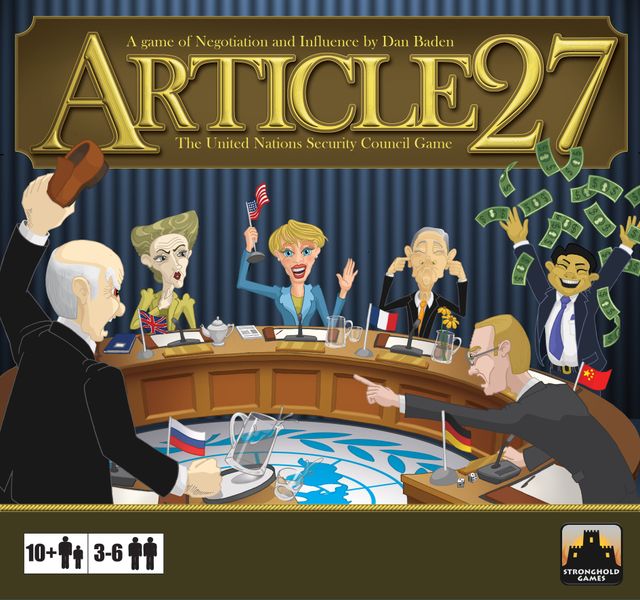Article 27: The UN Security Council Game (2012) Board Game
Article 27: The UN Security Council Game was released in 2012 and designed by Michael Christopher. It is a game that simulates the dynamics of the United Nations Security Council, where players take on the roles of different countries and negotiate, trade, and vote to achieve their strategic objectives.
Game Components of Article 27: The UN Security Council Game
How To Setup Article 27: The UN Security Council Game
To set up the game, each player receives a secret agenda card and a starting amount of bribe money. The role of the UN Secretary General is passed to each player in turn. The game begins with the first player presenting a proposal, marking the start of the negotiations phase.
Gameplay Mechanics and Game Objective
Player Experience
Playing **Article 27: The UN Security Council Game** immerses players in the art of negotiation and bargaining, mirroring real-world diplomatic scenarios. It teaches the importance of consensus in policy-making and introduces players to the shadow dynamics of international politics. The game enhances decision-making skills and provides a fun, interactive way to understand the complexities of the UN Security Council.
Pros
Cons
Personal Thoughts on Article 27: The UN Security Council Game
This game is ideal for those interested in politics, international relations, and strategic negotiation. It is a great tool for family game nights or educational settings, as it combines fun with learning. However, it may not be the best fit for casual gamers seeking a light, quick game experience. Instead
We are supported by our audience. When you purchase through links on our site, we may earn an affiliate commission, at no extra cost for you. Learn more.

